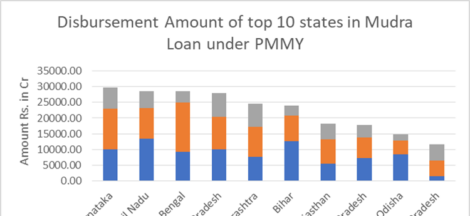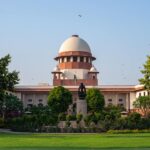Democratically elected governments often think their electors are idiots. They may have good reasons to build such a notion as a good number of them don’t deserve to be there in terms of their personal background and characteristic traits. Many of them are booked for even criminal offences. Voters have little choice in the selection of candidates. They go to polling stations to vote for candidates, who could be political liars or manipulators. The candidates are often chosen by their electors sold on false promises.
Imagine what will be the fate of some of those habitual liars sitting on top of a government fudging numbers to strongly create a false impression of the economy and administration if lying in politics is banned. For the first time in the history of democracy, the newly elected labour government of Welsh, part of Great Britain, has committed to making lying in politics illegal. The Welsh government said the ‘globally pioneering’ legislation will be enacted before next Senedd (Welsh parliament) elections in 2026. The Senedd members called it a historic moment in their effort to combat the “existential threat” that lying in politics poses in democracy.
The proposed legislation by the Welsh government will disqualify members and candidates found guilty of deliberate deception through an independent judicial process. A prominent Welsh politician, Adam Robert Price, who is leading the call for lying by politicians to be outlawed, had said: “What has been announced is truly historic, globally pioneering. We have a commitment from our government that our democracy will be the first in the world to introduce a general prohibition on deception by politicians. We are at the beginning of a global movement. We are going to outlaw political lying.” He said that truth is at the heart of democracy, but there had been a collapse in trust in politicians. “That is an existential threat. A democracy starts to break down if the electors can’t trust what the elected say,” he added.
Although it is too early to predict the impact of the proposed Welsh law on the democratic system across the world, including England and Scotland being the two other constituents of Great Britain, it may give rise to a movement in some of the democratic nations. Welsh is a very small country, part of the United Kingdom of Great Britain and Northern Ireland. As of 2021, Wales had a population of 3,107,494 and a total area of 21,218 sq. kms. Therefore, what may be legally possible in Welsh may be simply impossible to expect in large democracies such as the United States and India where lying is an integral part of party politics exposing criminal instincts of politicians and recording extremely low prosecution and conviction rates. A lying politician may be identified and nabbed, but what about a lying government run by such politicians, frequently dishing out lies and misrepresenting facts?
Imagine the situation in India, where political rulers make the government frequently fudge crucial numbers to mislead the public or electorates to push their political and economic agendas. It may be done just to promote a false feel-good feeling in times of rising inflation or falling employment or sugarcoat questionable financial transactions. What about such governments actions that benefit only certain chosen individuals or groups at the cost of the nation? How to identify persons behind such actions? A government can fudge official indices by enlarging or shrinking the concerned baskets to suit its public communications intent. For instance, at a time when prices of foods, vegetables, drugs and pharmaceuticals, communication and travel costs, education and health expenses are going through the roof, both the wholesale and retail prices indices in India show a big fall. One can blame them on the sizes of baskets in which those daily necessities are clubbed. How to handle such government deceptions?
There have been umpteen times of debates on government deception in a democratic society proliferating lies in the public sphere across the democratic world. The people trust an elected government. The most dangerous part is that the people also tend to trust even the deceptive actions and statements by their elected government. In fact, government lies are more dangerous to the functioning of democratic systems than public lies from an individual politician. Government lies also impact the legislature and judiciary.
Deception tends to spread like a contagious disease contacting other pillars of democracy, including legislature and judiciary, as well. Government lies are most difficult to regulate. When a government lies, it percolates down the system from politicians in power to trusted bureaucrats and staff members. Almost across the entire democratic world, the judiciary has unequivocally rejected the idea that constitutional law should do anything to constrain the government’s capacity to lie.
Mechanisms such as whistleblower protection laws, right to information laws and norms forbidding political interference with bureaucratic practice may be well-intentioned but they hardly work in a system which is hell-bent to promote lies to benefit a government and its elected political masters. In 2022, a deliberation by the US-based Colombia University’s Knight First Amendment Institute on the subject had raised a few pertinent questions. They include: Are there reforms, either constitutional, legislative, or institutional, that could be made to limit the government’s capacity to lie or to mitigate the harms created by government lies? What might it do to preserve the integrity of the information that the federal and state bureaucracies produce? In an intensely partisan political environment, is it possible to prevent the government’s lies or limit their harms?
Thus, the commitment of the Welsh country’s labour government to making lying in politics illegal may not quite help purify the democratic system as a whole. The government, the most powerful executive body in the system, which is used as a tool of deceit by elected politicians, may continue to lie or hide the truth to gain political advantage for the party in power. It’s no wonder that Professor Herald Laski, a noted British political philosopher and Labour Party leader during the mid-20th Century, distrusted the democratic system built on money power and lies before he finally turned a Marxist. The real political actors behind a democratic government may continue to remain unidentified when it comes to selling lies and deception to capture power. (IPA Service)




 SC Questions Bulldozer Actions in Conviction Cases
SC Questions Bulldozer Actions in Conviction Cases 